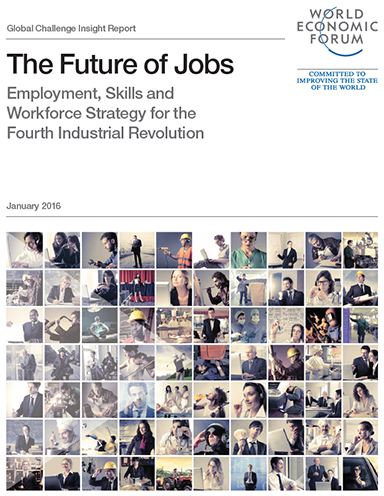The Future of Jobs Report
The World Economic Forum’s Future of Jobs Report seeks to understand the current and future impact of key disruptions on employment levels, skill sets and recruitment patterns in different industries and countries, it does so by asking the Chief Human Resources Officers of today’s largest employers to imagine how jobs in their industry will change up to the year 2020.
Disruptive changes to business models will have a profound impact on the employment landscape over the coming years.
Many of the major drivers of transformation currently affecting global industries are expected to have a significant impact on jobs, ranging from significant job creation to job displacement, and from heightened labor productivity to widening skills gaps.
In many industries and countries, the most in-demand occupations or specialties did not exist 10 or even five years ago, and the pace of change is set to accelerate.
By one popular estimate, 65% of children entering primary school today will ultimately end up working in completely new job types that don’t yet exist.
In such a rapidly evolving employment landscape, the ability to anticipate and prepare for future skills requirements, job content and the aggregate effect on employment is increasingly critical for businesses, governments, and individuals in order to fully seize the opportunities presented by these trends - and to mitigate undesirable outcomes.
Drivers of Change
We are today at the beginning of a Fourth Industrial Revolution.
Developments in previously disjointed fields such as artificial intelligence and machine learning, robotics, nanotechnology, 3D printing and genetics and biotechnology are all building on and amplifying one another.
Smart systems - homes, factories, farms, grids or entire cities - will help tackle problems ranging from supply chain management to climate change.
Concurrent to this technological revolution are a set of broader socioeconomic, geopolitical and demographic developments, with nearly equivalent impact to the technological factors.
Future of Jobs Report: Top 10 Skills
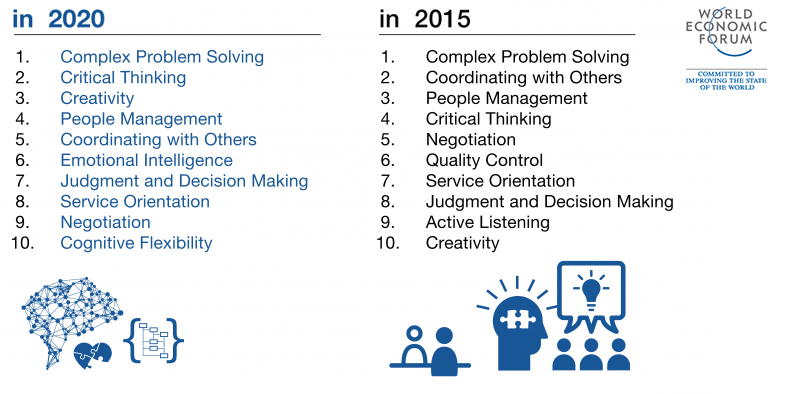
We also find that on average respondents expect that the impact for nearly all drivers will occur within the next 5 years, highlighting the urgency for adaptive action today.
Employment Trends
The global workforce is expected to experience significant churn between job families and functions.
Across the countries covered by the Report, current trends could lead to a net employment impact of more than 5.1 million jobs lost to disruptive labour market changes over the period 2015–2020, with a total loss of 7.1 million jobs - two thirds of which are concentrated in routine white-collar office functions, such as Office and Administrative roles - and a total gain of 2 million jobs, in Computer and Mathematical and Architecture and Engineering related fields.
Manufacturing and Production roles are also expected to see a further bottoming out but are also anticipated to have relatively good potential for upskilling, redeployment and productivity enhancement through technology rather than pure substitution.
New and Emerging Roles
Our research also explicitly asked respondents about new and emerging job categories and functions that they expect to become critically important to their industry by the year 2020.
Two job types stand out due to the frequency and consistency with which they were mentioned across practically all industries and geographies.
The first are data analysts, which companies expect will help them make sense and derive insights from the torrent of data generated by technological disruptions.
The second are specialized sales representatives, as practically every industry will need to become skilled in commercializing and explaining their offerings to business or government clients and consumers, either due to the innovative technical nature of the products themselves or due to new client targets with which the company is not yet familiar, or both.
A particular need is also seen in industries as varied as Energy and Media, Entertainment and Information for a new type of senior manager who will successfully steer companies through the upcoming change and disruption.
What’s Related
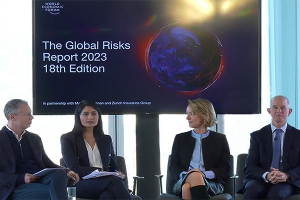
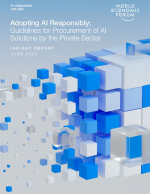
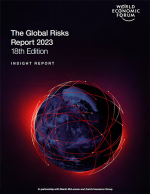

Favorites





